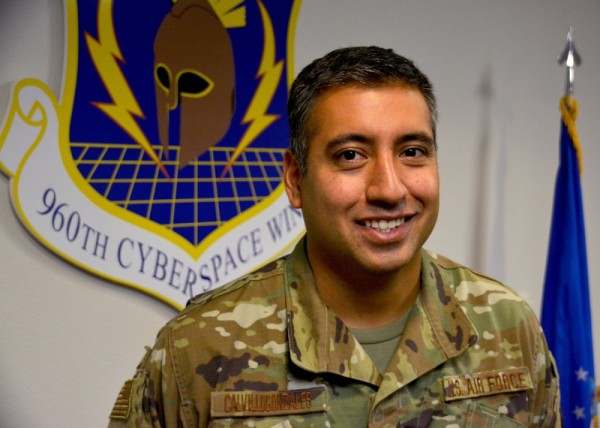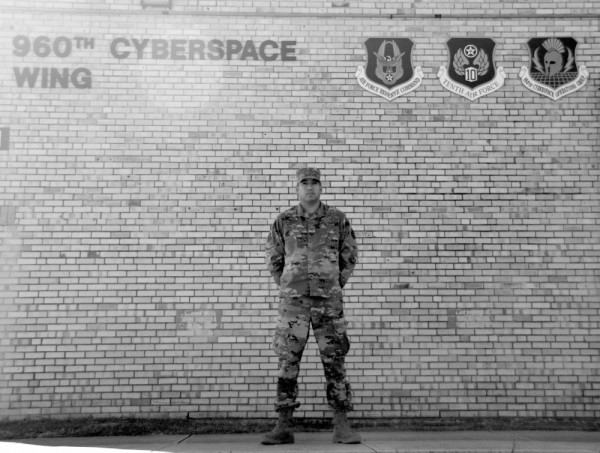‘My story is not unique’—Mexican-American airman calls out racism in the military
"Pains of the past are passed on and knowing this will help you know your troops.”
The year was 2007, and Dominic CalvilloGonzales was excited. The young airman had just been selected for a deployment to Ecuador because of his skills as a mechanic. At least, that’s why he thought he had been selected. Turns out, the real reason was something else entirely.
“A few senior mechanics who were also going on the deployment later told me, ‘You’re going to be the translator for us,’” CalvilloGonzales, now a Tech Sergeant, said in an Air Force blog on Thursday. “I told them I do not speak Spanish very well and they responded with ‘That’s the only reason we put you on this trip.’”

For CalvilloGonzales, it was the latest in a long line of racist experiences the Mexican-American faced both while growing up in the United States and while serving in the military. Ever since a report came out on racial disparities in the Air Force justice system this May, a host of airmen have come forward to share their own experience of racial bias in the service. Others include former Chief Master Sgt. of the Air Force Kaleth O. Wright, Chief of Staff Gen. Charles Q. Brown Jr. and Air Force Materiel Command chief Gen. Arnold W. Bunch Jr.
When CalvilloGonzales learned the real reason why he was selected for Ecuador, he thought of his grandmother, who was ‘smacked’ in a grocery store for translating English to Spanish for her mother.
“She said the woman yelled, ‘You speak English in this country or get out,’ CalvilloGonzales recalled. “I then asked in anger, ‘Why didn’t you or bisabuela do anything to that lady?’ My grandma smiled and simply said nothing could be done back then.”
Because of that experience, his grandmother refused to teach any of her children Spanish, CalvilloGonzales said. She also did not want them to have an accent that was perceived as “ignorant,” he said.
Unfortunately, things are much the same today as they were back then, CalvilloGonzales said. His father was stabbed in a high school race battle between whites and Mexicans in the 1970s, he recalled. Years later, CalvilloGonzales and his cousins were threatened with a firearm shortly after arriving at a high school party.
“[We] were there a little over 10 minutes when I was faced with a shotgun,” he said. “We were called a racial slur and told to get out.”

These kinds of experiences continued in the Air Force, CalvilloGonzales said, where he finds himself stuck with the labels “too brown” or “not Mexican enough.”
“It hurts that my subconscious knows to keep my guard up when I’m around white people,” the airman said. “It saddens me that one of the first thoughts I had when I saw my daughter for the first time was, ‘I’m glad she came out with more of her mother’s color.’ Her mother is very light-complected.”
These kinds of experiences are what many senior Air Force leaders hoped to bring to light when they encouraged airmen to talk about race with each other.
“I’ve got blinders on that are going to keep me from seeing what others with a different life experience and background are going to see,” said then-Chief of Staff Gen. David Goldfein said in a June conversation with Wright.
“It’s not because I’m not trying to see it, I just can’t,” he said. “It’s physically impossible because it’s not part of my life experience … the way we fill those blinders in is by opening up and sharing, ‘tell me about what this was like for you growing up.’”
Wright echoed Goldfein’s advice.
“Don’t assume that you know, but be open and allow people to talk to you about the experiences that they had,” the top enlisted leader said.
Related: 10 tips on how to talk about race, according to senior Air Force leaders
CalvilloGonzales, who now serves as an operations training specialist with the 426th Network Warfare Squadron, hopes his story will help emphasize just how common experiences like his are in the military.
“Your minority brothers and sisters in arms can most likely echo my story,” he said. “If you spend some time to know their past you can better understand their current emotions during this turbulent time. Pains of the past are passed on and knowing this will help you know your troops.”
Despite his experiences with racism in the military, CalvilloGonzales said the military has also taught him resiliency and respect.
“I want to echo the words of Lt. Gen. Jay Silveria, ‘There is a better idea … the power of diversity,’” he wrote. “‘If you can’t treat someone with dignity and respect then you need to get out.’”
